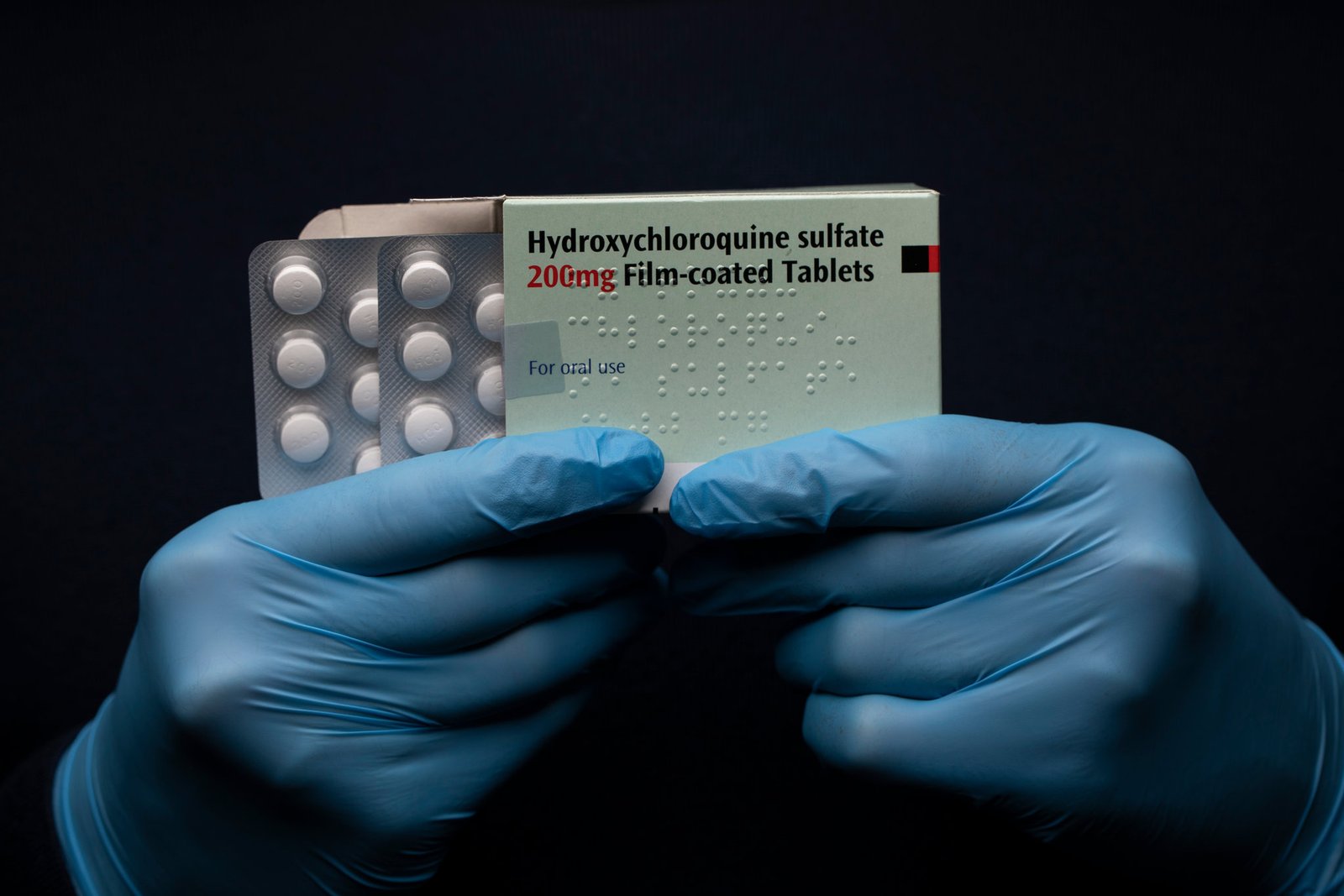The Controversial Ban on Antimalarial Drug Hydroxychloroquine: A Comprehensive Analysis
Introduction
In the early months of the COVID-19 pandemic, the antimalarial drug hydroxychloroquine gained worldwide attention as a potential treatment. However, as quickly as it rose to prominence, it became one of the most controversial drugs in recent memory. This article delves into the reasons behind the ban on hydroxychloroquine, its journey from promise to infamy, and the broader implications for public health policies.
The Rise of Hydroxychloroquine
Hydroxychloroquine, a medication primarily used to treat malaria and autoimmune diseases like lupus and rheumatoid arthritis, emerged as a potential treatment for COVID-19 in early 2020. Some studies suggested that it could inhibit the replication of the virus in vitro. President Donald Trump’s public endorsement of the drug fueled further interest and controversy.

The Hydroxychloroquine Hype
The hype around hydroxychloroquine led to a surge in demand, causing shortages for patients with legitimate medical needs. This resulted in the diversion of critical medications away from those who depended on them.
Controversial Studies and Mixed Findings
Multiple studies were conducted to assess the efficacy of hydroxychloroquine in COVID-19 treatment. However, these studies yielded mixed and often conflicting results. Some showed potential benefits, while others raised concerns about safety and effectiveness.
The Lancet Retraction
In June 2020, a high-profile study published in The Lancet claimed that hydroxychloroquine increased the risk of death in COVID-19 patients. This study prompted the World Health Organization (WHO) to temporarily halt its hydroxychloroquine trials. However, the study was later retracted due to concerns about its data sources and methodology, highlighting the challenges of conducting research during a pandemic.
The WHO Solidarity Trial
The WHO eventually resumed its Solidarity Trial, which aimed to evaluate the effectiveness of various COVID-19 treatments, including hydroxychloroquine. The trial did not find a significant reduction in mortality with hydroxychloroquine, leading to further skepticism about the drug’s benefits.
The FDA’s Revocation of Emergency Use Authorization
In June 2020, the U.S. Food and Drug Administration (FDA) revoked the Emergency Use Authorization (EUA) for hydroxychloroquine to treat COVID-19. The decision was based on a review of the available evidence, which did not support its use as an effective treatment for the virus.
Safety Concerns
Hydroxychloroquine is generally considered safe when used for approved indications. However, concerns arose regarding its safety in the context of COVID-19 treatment. Reports of cardiac side effects, including arrhythmias, raised alarms and prompted caution.
Political Influence and Polarization
The hydroxychloroquine debate became highly politicized, with prominent politicians, including President Trump, advocating for its use. This polarization hindered rational discourse and complicated public health decision-making.
Public Demand and Self-Medication
The controversy led to an increase in self-medication with hydroxychloroquine, as some individuals obtained the drug without a prescription. This posed significant risks, as improper use can result in adverse effects and potential harm.
Ethical Dilemmas in Research
The hydroxychloroquine controversy also highlighted ethical dilemmas in conducting research during a public health crisis. Balancing the need for rigorous scientific evidence with the urgency of finding effective treatments was a challenge.
The Banning of Hydroxychloroquine
In light of the accumulating evidence against hydroxychloroquine’s efficacy and safety in treating COVID-19, health authorities in various countries banned or restricted its use for this purpose. These decisions were made to protect public health and ensure that scarce medical resources were allocated appropriately.
The Implications of the Ban
- Trust in Public Health Authorities
The hydroxychloroquine controversy eroded trust in public health authorities. Some perceived the decisions to ban the drug as politically motivated, further fueling skepticism about the pandemic response.
- The Role of Media
Media coverage played a significant role in shaping public perception of hydroxychloroquine. Sensationalism and the amplification of political rhetoric in reporting contributed to the confusion surrounding the drug.
- Lessons for Future Pandemics
The hydroxychloroquine saga underscores the need for a more robust and transparent approach to evaluating potential treatments during pandemics. Clear guidelines for emergency use authorizations and a commitment to evidence-based decision-making are essential.
- Ethical Conduct of Research
The controversy highlights the importance of upholding ethical standards in research, even under the pressures of a crisis. Ensuring the validity and reliability of study results is crucial for informing public health policies.
Conclusion
The ban on hydroxychloroquine for COVID-19 treatment remains a topic of debate and controversy. While the drug initially showed promise, a lack of consistent evidence of its efficacy and safety led to its restriction or ban in many countries. The hydroxychloroquine story serves as a cautionary tale, highlighting the complexities of responding to a global health crisis and the challenges of balancing scientific rigor with urgency. Ultimately, it underscores the importance of evidence-based decision-making, transparency, and maintaining public trust in the face of uncertainty.
